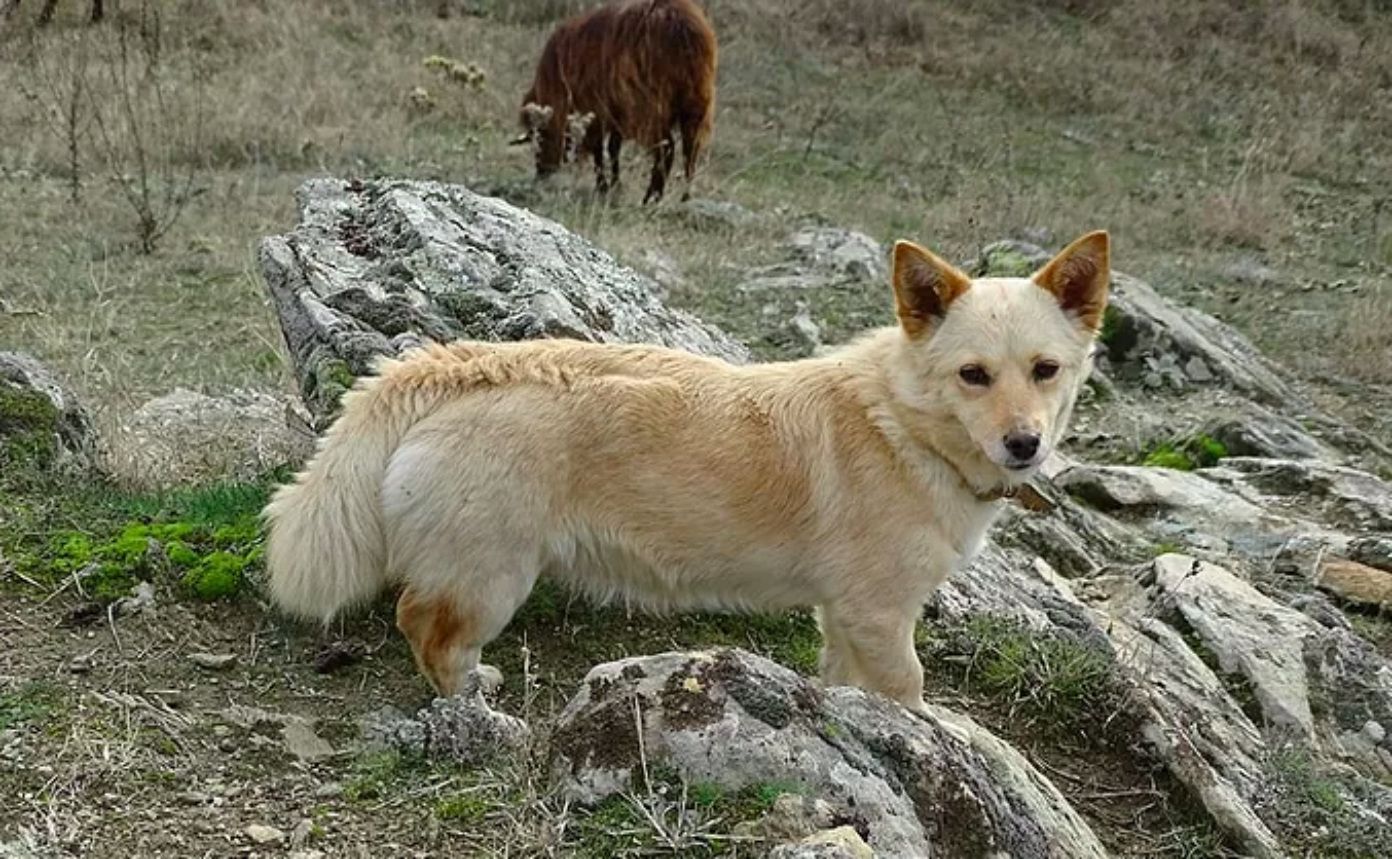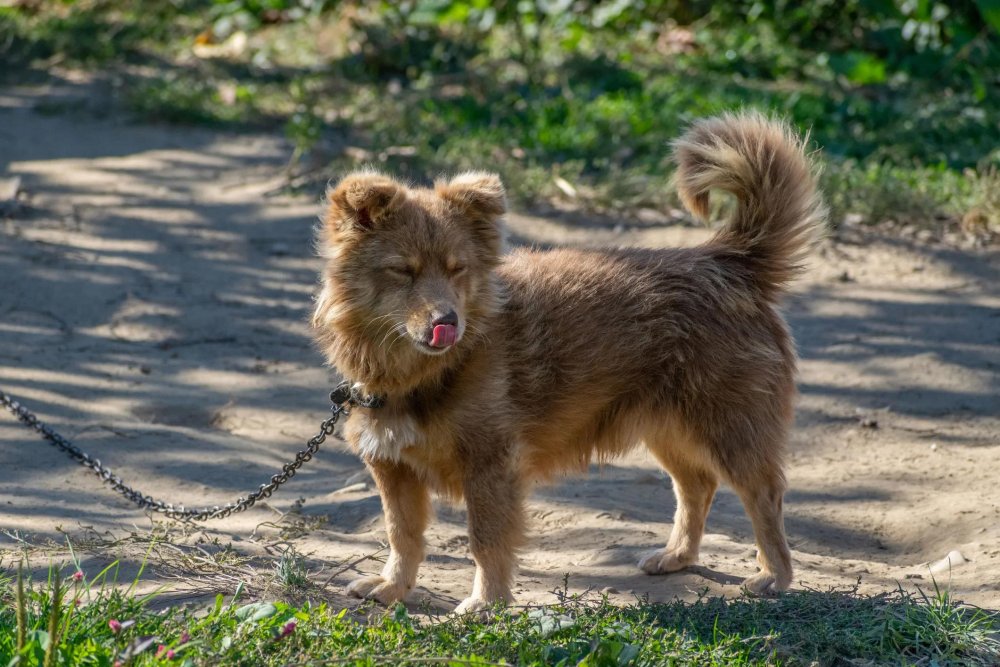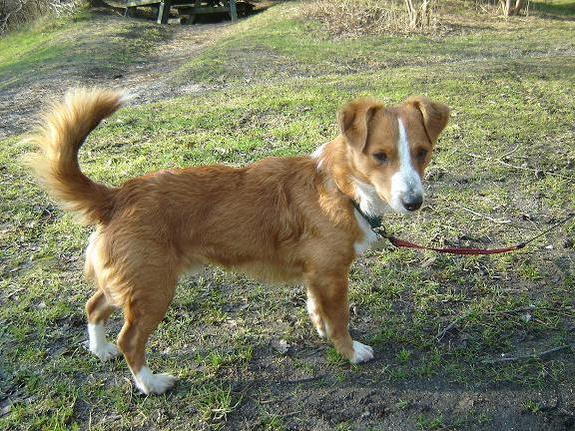- Breed Category: Companion dog
- Country of Origin: Greece
- Average Height: 25-32 cm (10-12.5 inches)
- Average Weight: 3.5-7 kg (8-15 pounds)
- Average Life Span: 12-16 years
- Grooming Requirements: Low, occasional brushing
- Exercise Requirements: Moderate, daily walks
- Coat Type: Short, smooth
- Coat Color Variations: Various, including white, black, tan
- Shedding Level: Low to moderate
- Ear Type: Erect or semi-erect
- Tail Type: Curled or straight
- Temperament: Friendly, alert, intelligent
- Intelligence Level: High
- Barking Tendency: Moderate
- Compatibility with Children: Good, very friendly
- Compatibility with Other Pets: Generally good
- Training Ease: Easy, eager to please
- Common Health Issues: Generally healthy
- Dietary Needs: Balanced diet, not overfed
- Energy Level: High
- Drooling Tendency: Low
- Sensitivity to Weather: Sensitive to cold
- Overall Maintenance Level: Low
- Original Purpose: Vermin control, companion
- Apartment Friendly: Yes, with sufficient exercise
- Best Suited For: Families, active individuals
- Cost of Ownership: Moderate
- Unique Traits: Versatile, adaptable
Imagine a dog that’s as rare as a Tasmanian Tiger but still exists today. Meet the Alopekis, a breed that’s been around since ancient Greece. These small, fox-like dogs are known for their intelligence and versatility. They’ve been companions to humans for centuries, adapting to various roles from herding to guarding. This article aims to shed light on the Alopekis, exploring their unique characteristics, rich history, and how best to care for them.
The Alopekis has roots that trace back to ancient Greek villages, where they were cherished for their agility and keen senses. Despite their long history, they remain relatively unknown outside Greece, making them a hidden gem among dog breeds.
The Alopekis: A Glimpse into History and Characteristics

Early Development of the Breed
The Alopekis has been a part of Greek life for thousands of years. These dogs were initially bred in rural Greek communities, where their small size and agility made them perfect for various tasks. They were often seen darting around farms, helping with herding and keeping pests at bay. Their development was shaped by necessity, leading to a breed that is both versatile and intelligent.
Role in Greek Culture and History
In ancient Greece, the Alopekis was more than just a working dog. They were companions, often depicted in art and literature as loyal and clever. Their presence in Greek households was a testament to their adaptability and the trust they earned from their human counterparts. These dogs were woven into the fabric of daily life, playing roles that extended beyond mere utility.
Key Historical Figures and Regions
The Alopekis is closely associated with regions like Thessaly and Macedonia, where they thrived in the rural landscapes. Historical figures, including Greek philosophers and poets, have mentioned these dogs, highlighting their significance in ancient society. Their enduring presence in these regions speaks to their resilience and the fondness with which they were regarded.
Physical Characteristics
Physically, the Alopekis is a small, fox-like dog with a sleek, agile build. They have a short, dense coat that comes in various colours, often with a distinctive bushy tail. Their sharp eyes and alert ears give them an intelligent expression, reflecting their keen senses and quick wits. Despite their size, they are robust and full of energy, always ready for action.
Appearance and Unique Traits
The Alopekis is a compact, agile dog, often likened to a small fox. Their sleek build is complemented by a short, dense coat that can be found in a variety of colours, including shades of brown, black, and white. One of their most distinctive features is their bushy tail, which adds to their fox-like appearance. Their sharp, intelligent eyes and alert ears are always on the lookout, giving them a lively and curious expression.
Temperament and Behaviour
When it comes to temperament, the Alopekis is known for being both intelligent and versatile. These dogs are quick learners, making them easy to train for various tasks. They are naturally curious and enjoy exploring their surroundings, which keeps them mentally stimulated. Despite their small size, they are full of energy and love to be active, whether it’s playing in the backyard or going for a walk. Their friendly nature makes them great companions, and they tend to get along well with children and other pets.
Personality and Suitability as a Family Pet

Typical Personality Traits
The Alopekis is a breed that stands out for its loyalty, intelligence, and adaptability. These dogs are incredibly devoted to their families, forming strong bonds with their human companions. Their intelligence makes them quick learners, eager to pick up new commands and tricks. Adaptability is another hallmark of the Alopekis, allowing them to thrive in various environments, whether it’s a bustling city or a quiet rural setting.
Suitability as a Family Pet
As a family pet, the Alopekis is a fantastic choice. Their friendly and affectionate nature makes them excellent companions for people of all ages. They are known for their gentle disposition, which makes them particularly well-suited for families with children. Their small size and manageable energy levels mean they can comfortably live in apartments or houses with yards.
Interaction with Children and Other Animals
The Alopekis is great with kids, often forming close bonds with them. They are patient and playful, making them ideal playmates. When it comes to other animals, they generally get along well, especially if socialised from a young age. Their friendly nature means they can coexist peacefully with other pets, including cats and other dogs.
Training and Exercise Needs
Training an Alopekis is usually a rewarding experience due to their intelligence and eagerness to please. They respond well to positive reinforcement techniques and enjoy learning new things. Regular exercise is important to keep them happy and healthy. Daily walks and playtime in the backyard or park will help burn off their energy and keep them mentally stimulated.
Training, Exercise, and Health of the Alopekis

Importance of Early Training and Socialisation
Getting an Alopekis started with training and socialisation early on is crucial. These dogs are naturally intelligent and curious, so introducing them to different environments, people, and other animals helps them grow into well-rounded adults. Early training sets the foundation for good behaviour and strengthens the bond between you and your dog.
Recommended Training Techniques
Positive reinforcement is the way to go with Alopekis. They respond well to treats, praise, and play as rewards. Keep training sessions short and fun to maintain their interest. Consistency is key, so make sure everyone in the household is on the same page with commands and rules.
Daily Exercise Requirements and Activities They Enjoy
Alopekis are energetic little dogs that need daily exercise to stay happy and healthy. A couple of walks a day, combined with some playtime, will do the trick. They love activities that challenge their minds, like puzzle toys or agility courses. Keeping them active helps prevent boredom and unwanted behaviours.
Health and Lifespan
Generally, Alopekis are healthy dogs with a lifespan of around 12 to 15 years. Regular vet check-ups, a balanced diet, and plenty of exercise contribute to their longevity. Like any breed, they can be prone to certain health issues, so it’s important to be aware and proactive in their care.
Health and Care for the Alopekis

Common Health Issues
The Alopekis is generally a healthy breed, but like all dogs, they can be prone to certain health issues. Some may experience joint problems or dental issues, so regular check-ups with the vet are essential. Keeping an eye on their weight is also important, as obesity can lead to other health complications.
Average Lifespan and Health Tips
With proper care, Alopekis can live between 12 to 15 years. To keep them healthy, ensure they have a balanced diet and regular exercise. Mental stimulation is just as important, so engage them with interactive toys and training sessions.
Preventative Care Recommendations
Preventative care is key to a long, healthy life. Regular vaccinations, flea and tick prevention, and dental care should be part of their routine. Annual vet visits will help catch any potential issues early.
Grooming and Maintenance
The Alopekis has a short, dense coat that requires minimal grooming. A weekly brush will keep their coat looking its best and reduce shedding. Regular nail trims and ear checks are also important to prevent any discomfort or infections.
Coat Care and Grooming for the Alopekis

Coat Care and Grooming Routines
The Alopekis sports a short, dense coat that’s pretty low-maintenance. A quick brush once a week is usually enough to keep their coat looking sleek and healthy. This routine helps remove loose hairs and keeps their skin in good condition. Regular grooming also gives you a chance to check for any skin issues or parasites.
Shedding and Seasonal Grooming Tips
While the Alopekis doesn’t shed excessively, you might notice a bit more hair during seasonal changes. During these times, a more frequent brushing schedule can help manage shedding and keep your home fur-free. A good quality brush or grooming mitt can make the job easier and more effective.
Diet and Nutrition
A balanced diet is crucial for the Alopekis to maintain their energy and health. High-quality dog food that meets their nutritional needs is a must. Keep an eye on portion sizes to prevent obesity, which can lead to other health issues. Fresh water should always be available, and occasional treats can be used for training and rewards.
Nutritional Needs and Feeding for the Alopekis
Nutritional Needs for Optimal Health
The Alopekis thrives on a balanced diet rich in proteins, healthy fats, and essential vitamins. High-quality commercial dog food that meets these nutritional needs is ideal. Look for options with real meat as the first ingredient and avoid fillers like corn and soy.
Foods to Include and Avoid
Include lean meats, fish, and vegetables in their diet for variety and nutrition. Avoid foods high in artificial additives, sugars, and unhealthy fats. Human foods like chocolate, grapes, and onions are toxic to dogs and should be kept out of reach.
Feeding Schedules and Portion Recommendations
Feed your Alopekis twice a day, once in the morning and once in the evening. Portion sizes depend on their age, weight, and activity level, so consult your vet for personalised advice. Always ensure fresh water is available.
Fun Facts and Trivia
Did you know the Alopekis is often referred to as a “fox dog” due to its appearance? Despite their small size, they have a big appetite for adventure and love exploring new environments.
Interesting Tidbits and Famous Alopekis in Media

Interesting Tidbits about the Alopekis
The Alopekis is a breed that has managed to stay under the radar, despite its ancient roots. Known for their fox-like appearance, these dogs are incredibly agile and quick on their feet. They have a knack for problem-solving, which makes them excellent at tasks that require a bit of cunning. Their small size doesn’t stop them from being effective watchdogs, as they are always alert and ready to sound the alarm if something seems amiss.
One fascinating aspect of the Alopekis is their adaptability. Whether in a bustling city or a quiet village, they adjust seamlessly to their surroundings. This trait has made them a favourite among those who appreciate a dog that can fit into various lifestyles.
Famous Alopekis Dogs in Media or History
While the Alopekis may not have the same level of fame as some other breeds, they have made their mark in history and media. In ancient Greek art, these dogs were often depicted alongside their human companions, showcasing their role as trusted allies. Although not widely featured in modern media, their unique look and charming personality have caught the attention of dog enthusiasts and historians alike.
In recent years, there has been a growing interest in preserving the breed, with efforts to document their history and promote their unique qualities. This has led to a resurgence in their popularity, particularly among those who value a breed with a rich cultural heritage.
Final Thoughts

The Alopekis is a hidden gem among dog breeds. This ancient Greek companion offers a blend of intelligence, loyalty, and adaptability. Despite their small size, they bring immense joy and companionship to families and individuals alike. Embracing an Alopekis means welcoming a piece of history into your home, with all the love and adventure they bring. Consider adopting this versatile breed and experience the unique bond they offer.
